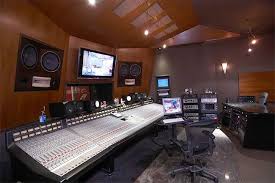Heat pumps are increasingly gaining popularity as a reliable and green alternative to conventional cooling and heating systems. They work by transferring heat instead of producing it, which makes them a more energy-efficient option to maintain the temperature of your home throughout the year.
What Is a Heat Pump?
A heat pump (tepelné čerpadlo) is a gadget that moves heat from one area to another. It is comprised consisting of an outdoor as well as an indoor unit that is connected via refrigerant lines. The system uses refrigerant that absorbs releases heat as it circulates through the system. In winter, it extracts heat from the air outside (even in cold weather) and then transfers it into to warm your home. In summer, the process is reversed: the pump removes heat from the inside, and then releases it to the outside, thereby cooling your home.
Types of Heat Pumps
Air Source Heat Pumps (ASHPs): These are the most common and function by transferring heat with the outside air. They are further subdivided into:
Heating devices that transfer heat between the air inside and out.
Heating pumps that transfer heat into the water inside an hydronic system. This then heats your home via radiators or underfloor heating.
Ground Source Heat Pumps (GSHPs): Also known as geothermal heat pumps, these systems are able to exchange heat with the ground. They are typically better than air source heat pumps due to the fact that the temperature of the ground is relatively constant throughout the year.
Water source heat pumps: These use water from a well, lake, or river as the heat exchange medium. They are not as common, but can be very efficient if you have a suitable water source near.
Benefits of Heat Pumps
Energy Efficiency: Heat pumps can provide up to three times more heat energy to a home than the electricity they consume. This can result in significant savings on energy bills compared to traditional heating systems.
Environment Impacts: by reducing reliance of fossil fuels and energy sources, heat pumps can help reduce carbon emissions, which makes them greener options for heating and cooling.
Flexibility: Heat pumps offer both heating and cooling capabilities, making them a versatile choice for all-year-round comfort.
Lasting power: With regular maintenance heating systems can last between 15 and 20 years, which is more than conventional cooling and heating systems.
Considerations
Initial cost: Heat pumps can have more upfront costs when compared to traditional systems. However, this is often compensated with lower operational costs as well as government incentives.
Efficiency in Extreme Temperatures The modern heat pump work well in a wide range of temperatures, their efficiency may decrease in extremely cold climates. It is important to select the right system for the local climate.
In short the heat pumps are a smart investment for green energy and sustainability. Their ability to provide both cooling and heating, coupled with the long-term savings they provide and a reduced carbon footprint makes them an attractive option for modern homes.



